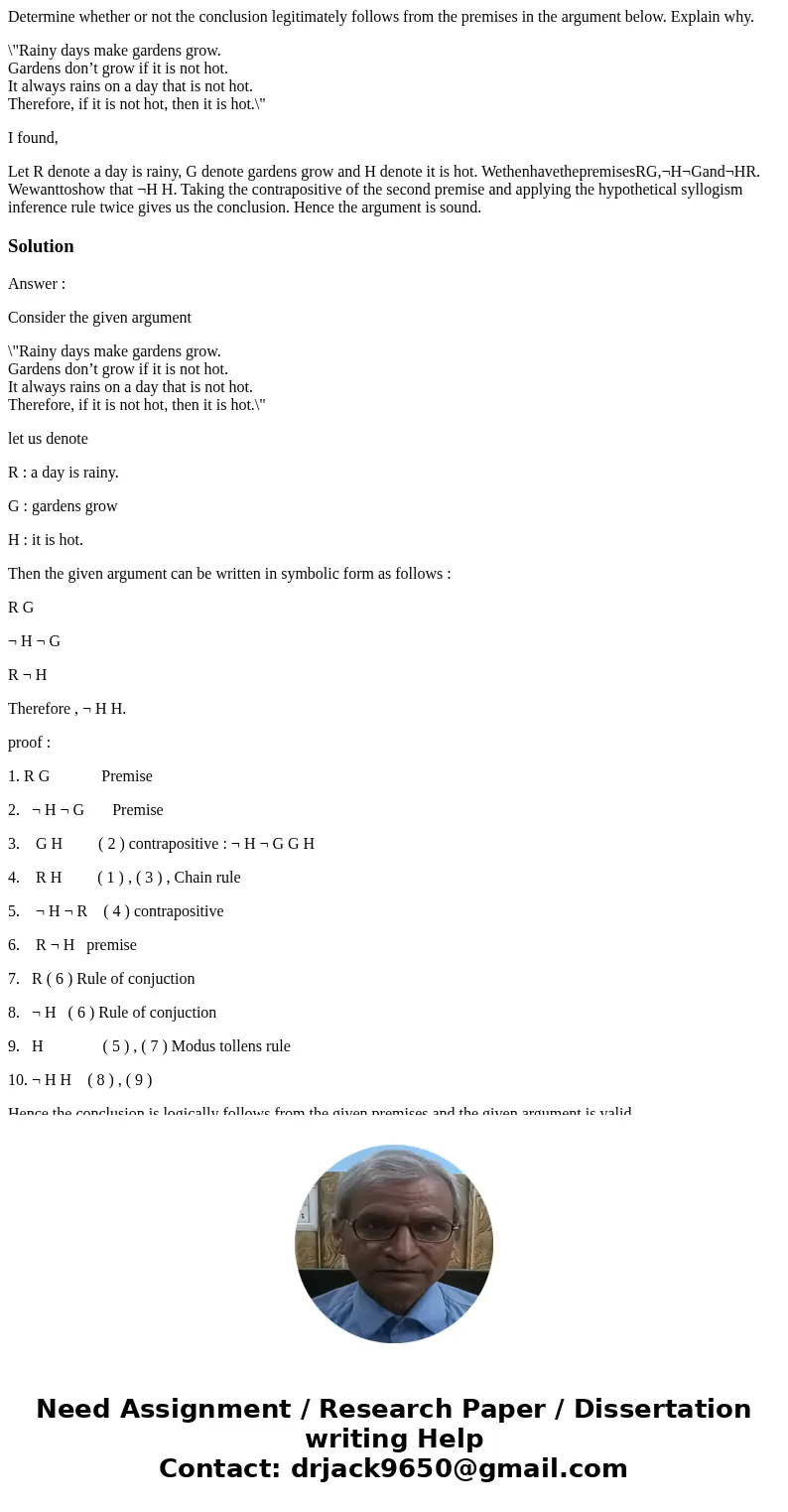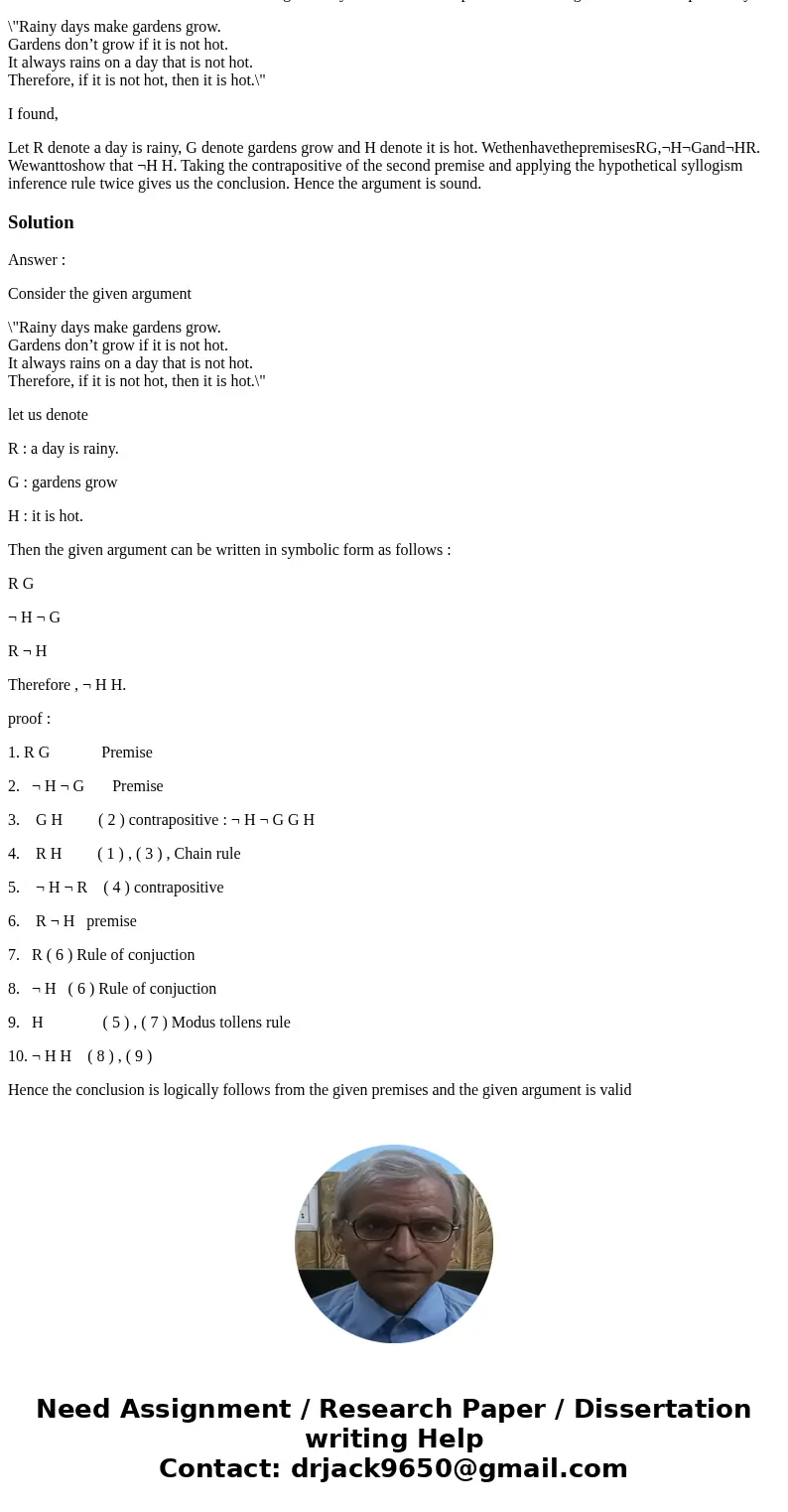Determine whether or not the conclusion legitimately follows
Determine whether or not the conclusion legitimately follows from the premises in the argument below. Explain why.
\"Rainy days make gardens grow.
Gardens don’t grow if it is not hot.
It always rains on a day that is not hot.
Therefore, if it is not hot, then it is hot.\"
I found,
Let R denote a day is rainy, G denote gardens grow and H denote it is hot. WethenhavethepremisesRG,¬H¬Gand¬HR. Wewanttoshow that ¬H H. Taking the contrapositive of the second premise and applying the hypothetical syllogism inference rule twice gives us the conclusion. Hence the argument is sound.
Solution
Answer :
Consider the given argument
\"Rainy days make gardens grow.
Gardens don’t grow if it is not hot.
It always rains on a day that is not hot.
Therefore, if it is not hot, then it is hot.\"
let us denote
R : a day is rainy.
G : gardens grow
H : it is hot.
Then the given argument can be written in symbolic form as follows :
R G
¬ H ¬ G
R ¬ H
Therefore , ¬ H H.
proof :
1. R G Premise
2. ¬ H ¬ G Premise
3. G H ( 2 ) contrapositive : ¬ H ¬ G G H
4. R H ( 1 ) , ( 3 ) , Chain rule
5. ¬ H ¬ R ( 4 ) contrapositive
6. R ¬ H premise
7. R ( 6 ) Rule of conjuction
8. ¬ H ( 6 ) Rule of conjuction
9. H ( 5 ) , ( 7 ) Modus tollens rule
10. ¬ H H ( 8 ) , ( 9 )
Hence the conclusion is logically follows from the given premises and the given argument is valid


 Homework Sourse
Homework Sourse